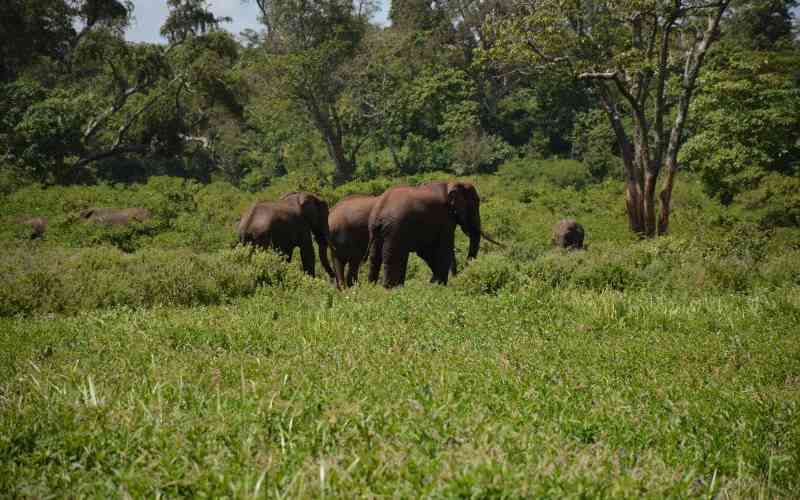Elephants grazing at lower imenti forest during the day after destroying food crops in kithoka and Ruiri area of Meru County. [ Patrick Muthuri/Standard]
×
The Standard e-Paper
Stay Informed, Even Offline

Food security in drought stricken areas of Ganze is under threaten after marauding elephants invaded farms in the area destroying more than 100 acres of maize.
The jumbos raided farms in Kavunzoni, Migujini, Goshi and Midoina villages and cleared the crops.